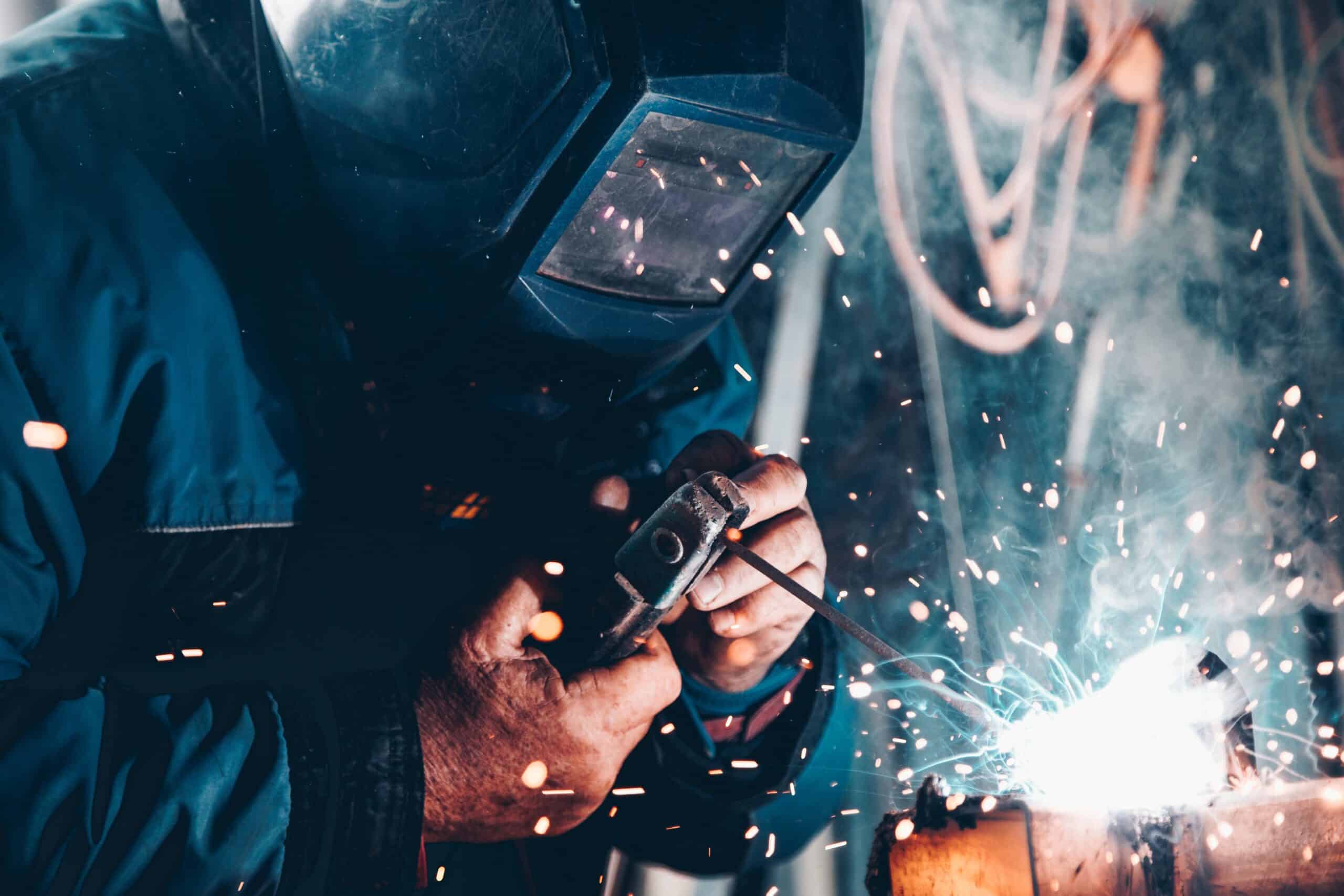
What is the Difference Between a Welder and a Fabricator?
In the welding industry, there are two essential roles that often overlap: welders and fabricators. Though both positions involve working with metal, each has a unique skill set and job responsibilities. If you’re interested in pursuing a career in welding, understanding the differences between a welder and a fabricator can help you decide which path best suits your skills and career goals.
What Does a Welder Do?
A welder primarily focuses on joining metal pieces using heat. They use specialized equipment to fuse metal components and work with a variety of welding techniques, including MIG, TIG, stick, and flux-cored welding. While welders may work in different environments, from outdoor construction sites to indoor workshops, the primary responsibility of this manufacturing job is ensuring strong, clean, and precise welds that meet industry standards.
Key Responsibilities of a Welder:
- Executing welds: Welders create secure, quality welds based on project requirements and blueprints.
- Maintaining equipment: To ensure safety and quality, welders regularly inspect and maintain their tools and machinery.
- Following safety protocols: Welders work with potentially hazardous materials and must adhere to strict safety guidelines.
- Reading blueprints and diagrams: Welders interpret technical drawings to accurately execute their work.
The job of a shop welder or field welder often varies. A shop welder works primarily indoors, focusing on repetitive welding tasks, while field welders work in outdoor or on-site locations, often dealing with more varied and demanding conditions. Both shop and field welders are valued in industries like construction, automotive, and manufacturing.
What Does a Fabricator Do?
A fabricator, or fabricator welder, performs welding tasks but goes beyond simply joining metals. Fabricators are responsible for shaping, assembling, and even designing metal structures and components. This job involves a high level of craftsmanship, as fabricators cut, bend, and shape metal parts according to design plans before welding them together.
Key Responsibilities of a Fabricator:
- Reading and interpreting designs: Fabricators work from blueprints or 3D models to bring complex structures to life.
- Shaping and assembling metal components: They use tools like saws, grinders, and torches to create precise parts.
- Welding and fitting: Fabricators may perform welding as part of the assembly process, ensuring parts fit securely.
- Quality control: Fabricators check the final product to meet design standards and specifications.
Fabricators often have a broader range of responsibilities than welders and must be skilled in metalworking and fabrication techniques, as well as basic welding. Their work may include building custom metal products, installing equipment, or assembling large metal structures.
Comparing the Skills of a Welder and a Fabricator
While both shop welders and fabricators have overlapping skills, their expertise often diverges. A welder must focus on precision and technique, creating secure bonds that can withstand significant stress and pressure. They need an eye for detail and knowledge of various metals and their properties. Welders should also be comfortable working in confined spaces or at heights, depending on the project.
On the other hand, a fabricator welder requires skills in blueprint reading, cutting, and assembling, in addition to welding. They need to understand how different parts fit together and must have experience using a wide range of tools, including power tools and metalworking machinery. Fabricators are often more hands-on with the design and construction process, as they shape and mold metal into desired forms before final assembly.
Working Environment and Job Opportunities
Shop welders and fabricators can work in a variety of settings. Many fabricators work indoors in manufacturing facilities, where they can have greater control over the environment. Shop welders or fabricators, however, may find themselves working in more rugged environments on construction sites or in shipyards, often with varied daily tasks.
Both roles are in demand across industries like:
- Construction: Both shop welders and fabricators play vital roles in building structures, pipelines, and heavy equipment.
- Manufacturing: From cars to appliances, fabricators and welders are essential in assembling and repairing products.
- Shipbuilding and aerospace: In these highly specialized fields, the skills of fabricators and welders are crucial for creating durable components.
Educational Requirements and Career Paths
Becoming a welder or fabricator welder typically requires vocational training or certification in welding and metalworking. Some technical schools offer specific programs for welding, and these courses often include instruction in blueprint reading, metal properties, and safety procedures. Fabricators may also benefit from additional training in machining, cutting, and shaping.
For those starting as welders, gaining experience and certifications like the Certified Welder (CW) credential from the American Welding Society can open doors to more advanced welding positions. For fabricators, additional skills in CAD software or metalworking machinery can lead to supervisory roles or specialized fabrication positions.
Should You Become a Welder or Fabricator?
If you enjoy precise, hands-on work and are focused on mastering welding techniques, a career as a welder might be the right path for you. Welders who excel in specific techniques, like TIG or MIG, are especially valuable in industries that require strong, detailed welds.
However, if you’re interested in working on a variety of projects, enjoy interpreting blueprints, and have a knack for design, consider pursuing a career as a fabricator welder. Fabricators who can weld as well as shape, cut, and assemble complex metal structures are versatile assets in the industry, often opening up broader career opportunities.
Start Your Welding or Fabrication Career with NCW
Whether you’re interested in becoming a welder or a fabricator, NCW can help you find the right job to fit your skills and goals. We specialize in connecting talented professionals like you with opportunities in the manufacturing, construction, and warehouse industries. Reach out to NCW recruiting services today, and let us support you on your journey to a rewarding career in welding or fabrication!
